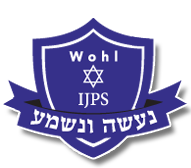HISTORY at WIJPS
Intent
At WIJPS, we aim for a high quality history curriculum which should inspire in pupils a curiosity and fascination about Britain’s past and that of the wider world. Our teaching equips pupils with knowledge to help them to understand the history of Britain and how it has influenced and been influenced by the wider world. Pupils know and understand about significant aspects of the history of the wider world for example ancient civilisations and empires; changes in living memory and beyond living memory. They learn about the lives of significant people of the past; understand the methods of historical enquiry and are able to ask and answer questions. We want children to enjoy and love learning about history, by gaining effective knowledge and skills, not just through experiences in the classroom, but also through the use of fieldwork and educational visits to interpret facts and make reasoned judgements.
Aims
- know and understand the history of these islands as a coherent, chronological narrative, from the earliest times to the present day: how people’s lives have shaped this nation and how Britain has influenced and been influenced by the wider world
- know and understand significant aspects of the history of the wider world: the nature of ancient civilisations; the expansion and dissolution of empires; characteristic features of past non-European societies; achievements and follies of mankind
- gain and deploy a historically grounded understanding of abstract terms such as ‘empire’, ‘civilisation’, ‘parliament’ and ‘peasantry’
- understand historical concepts such as continuity and change, cause and consequence, similarity, difference and significance, and use them to make connections, draw contrasts, analyse trends, frame historically-valid questions and create their own structured accounts, including written narratives and analyses
- understand the methods of historical enquiry, including how evidence is used rigorously to make historical claims, and discern how and why contrasting arguments and interpretations of the past have been constructed
- gain historical perspective by placing their growing knowledge into different contexts, understanding the connections between local, regional, national and international history; between cultural, economic, military, political, religious and social history; and between short- and long-term timescales.
For further details, please use the links below:


